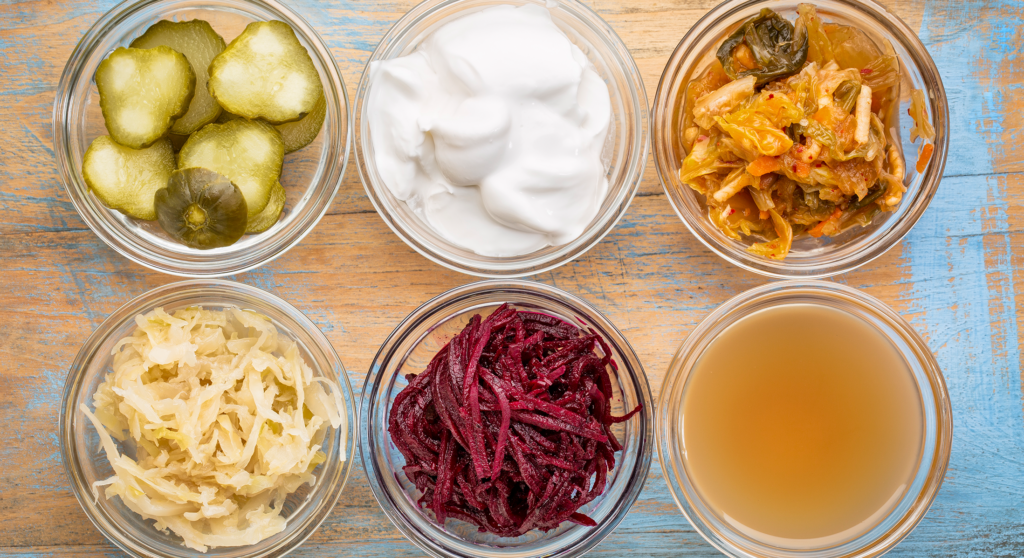Exploring the Impact of Modern Food Habits on Gut Microorganisms
Modern food habits have significantly changed over the years due to advancements in food processing, water purification, and hygiene practices. While these developments have helped in reducing the risk of infectious diseases, they have also led to a decline in the consumption of beneficial microorganisms through diet. This lack of exposure to live microbes is believed to play a role in the increasing prevalence of allergic and autoimmune diseases, as well as obesity.
The Evolution of Human Immune System and Gut Microbiota
Throughout human evolution, the immune system, particularly the gut immune system, has been exposed to a variety of microorganisms through diet. However, with the industrialization of food production, the intake of live microbes has decreased. This shift in dietary habits has not allowed the human immune system enough time to adapt to the lower levels of safe microorganisms present in modern diets. As a result, there has been a rise in immune-related conditions such as food allergies, autoimmune diseases like inflammatory bowel diseases, and Hashimoto’s thyroiditis.
The Role of Live Microorganisms in Promoting Health
Research has shown that consuming safe, live microorganisms through diet can have numerous health benefits. Observations made by Nobel Prize-winning immunologist Ilya Metchnikoff over a century ago highlighted the longevity of Bulgarian peasants who consumed fermented dairy products. Additionally, studies comparing the diets of tribal communities rich in fiber and live microbes to those of industrialized populations have shown differences in gut microbiota and associated health outcomes.
Controlled human trials on probiotics have demonstrated that the consumption of live microbes can improve various health conditions, including gut-related issues, respiratory infections, and skin conditions like atopic dermatitis. Even in healthy individuals, incorporating yogurt cultures and probiotics into the diet can aid in lactose digestion and gastrointestinal symptom management.
Enhancing Microbial Diversity through Fermented Foods
Fermented foods offer a simple and effective way to introduce safe, live microorganisms into daily dietary routines. Some experts have even suggested adding a fifth food group dedicated to fermented foods in dietary guidelines, emphasizing their role in promoting microbial diversity and supporting overall health.
Future Directions in Research and Recommendations
As the scientific community continues to explore the link between dietary microorganisms and health, there is a growing need for comprehensive databases that quantify the levels of live microbes in different foods. Further research is essential to fill existing knowledge gaps and establish clear dietary recommendations regarding the consumption of live microbes for optimal health outcomes.
By understanding the impact of modern food habits on gut microorganisms and recognizing the potential benefits of incorporating live microbes into our diets, we can take proactive steps towards improving our overall well-being and immune function.
the topic “The Impact of Social Media on Mental Health”
In today’s digital age, social media has become an integral part of our daily lives. With platforms like Facebook, Instagram, Twitter, and Snapchat dominating our online interactions, it’s no surprise that social media has a significant impact on our mental health. While social media has revolutionized the way we connect with others and share information, it also has its downsides when it comes to mental well-being.
One of the most prominent ways in which social media affects mental health is through comparison. As we scroll through our feeds, we are bombarded with images and updates from friends, family, and influencers that often portray a curated and idealized version of their lives. This can lead to feelings of inadequacy, jealousy, and low self-esteem as we compare ourselves to others who appear to have it all together. This phenomenon, known as “social comparison theory,” can have detrimental effects on mental health, contributing to anxiety, depression, and feelings of isolation.
Moreover, the constant exposure to negative news and controversial topics on social media can also take a toll on our mental well-being. With the prevalence of fake news and misinformation, it’s easy to become overwhelmed and anxious about current events. The constant barrage of negative content can lead to feelings of hopelessness, stress, and even trauma, as we struggle to make sense of the world around us.
In addition to comparison and exposure to negative content, social media can also have a detrimental impact on our sleep patterns and overall well-being. The blue light emitted from screens can disrupt our circadian rhythms, making it harder to fall asleep and stay asleep. This can lead to fatigue, irritability, and poor concentration during the day, affecting our mental health and overall quality of life.
Despite these negative effects, social media can also have positive impacts on mental health. For many people, social media provides a sense of community and support, allowing them to connect with others who share similar experiences and struggles. Social media can also be a valuable tool for raising awareness about mental health issues and promoting self-care and self-compassion.
To mitigate the negative effects of social media on mental health, it’s important to practice mindfulness and set boundaries when using social media. Limiting screen time, unfollowing accounts that trigger negative emotions, and taking breaks from social media can all help to protect our mental well-being. Additionally, seeking support from friends, family, or a mental health professional can provide a safe space to discuss our feelings and concerns about social media.
In conclusion, while social media has transformed the way we connect and communicate with others, it also has a significant impact on our mental health. By being mindful of our social media usage and setting boundaries, we can navigate the digital landscape in a way that promotes our mental well-being. Remember, it’s important to prioritize self-care and seek help when needed to maintain a healthy relationship with social media and ourselves.


